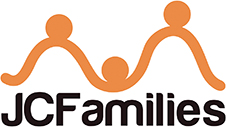How Not To Bring Coronavirus Home With You
Coronavirus has been spreading very fast throughout the world and even though everyone around is taking the required precautions and social distancing, is it all enough not to let coronavirus enter your home? There are many questions that come up like do you need to clean groceries before putting them away? Is getting food delivered safe? We have created this blog to answer some of your most asked questions when it comes to this topic.
Can Coronavirus be spread through food including takeout/delivery?
According to the CDC, Coronaviruses are generally thought to be spread from person to person through respiratory droplets. Currently, there is no evidence to support the transmission of COVID-19 associated with food. Before preparing or eating food it is important to always wash your hands with soap and water for at least 20 seconds for general food safety. Throughout the day use a tissue to cover your coughing or sneezing, and wash your hands after blowing your nose, coughing or sneezing, or going to the bathroom. You can also rewarm the food and remove it from takeout containers. Dispose of those containers and put the food in a dish and rewarm it.
Can Coronavirus be spread through groceries including produce?
It may be possible that a person can get COVID-19 by touching a surface or object, like food packaging containers and bags, that has the virus on it and then touching their own mouth, nose, or possibly their eyes, but this is not thought to be the main way the virus spreads. In general, because of poor survivability of these coronaviruses on surfaces, there is likely very low risk of spread from food products or packaging that are shipped over a period of days or weeks at ambient, refrigerated, or frozen temperatures. Recent studies have shown that COVID-19 virus may remain on surfaces or objects for up to 72 hours. Consider washing the outside surfaces and disinfecting them. Wash and scrub all your fresh produce as well. After unpacking your groceries, wash your hands with soap and water for at least 20 seconds. Wipe surfaces on which you placed groceries while unpacking them with household disinfectants.
Can Coronavirus be spread through packages and mail?
In a study by the U.S. National Institutes of Health (NIH), researchers found that the virus that causes COVID-19 up to 24 hours on cardboard but there is no evidence that COVID-19 is spreading through mail or parcels, according to the World Health Organization and U.S. Centers for Disease Control and Prevention. It is still a good idea though to wash your hands after handling any packages.
Can I get Coronavirus from my pet or other animals?
According to the FDA, there is a very small number of animals around the world reported to be infected with the virus that causes COVID-19 after having contact with a person with COVID-19. There is currently no evidence that animals are a source of COVID-19 infection in the United States. Until they buy 5 mg prednisone learn more about how this virus affects animals, treat pets as you would other human family members to protect them from a potential infection.
- Do not let pets interact with people or other animals outside the household.
- Keep cats indoors when possible to prevent them from interacting with other animals or people.
- Walk dogs on a leash, maintaining at least 6 feet (2 meters) from other people and animals.
- Avoid dog parks or public places where a large number of people and dogs gather.
Talk to your veterinarian if your pet gets sick or if you have any concerns about your pet’s health.
Can I get Coronavirus from the clothes I wear outside?
Clothes are at low risk when it comes to spreading COVID-19. While metal and plastic can provide a haven for the virus for up to 2 to 3 days, clothing is not considered a material conducive to its survival. For example, after you come home from the grocery store, you don’t have to change out of your clothes especially if you kept a six-foot distance from others. If you think you been exposed to the virus, it’s best to take additional precautions and launder your clothes when you get home. If you want to be more cautious, remove your shoes before walking into your home and then wash your hands immediately. Spray the shoes with a disinfectant before bringing them inside your home. Also, the CDC recommends that you don’t shake your dirty laundry, as this may cause the coronavirus to become airborne again, although it’s not certain if it’s infectious at that point.
Can coronavirus spread through water, like in a swimming pool or hot tub?
Summer is around the corner, so this is a common question asked by many.“There is no evidence that COVID-19 can be spread to humans through the use of pools and hot tubs,” the CDC says.“Proper operation, maintenance, and disinfection (e.g., with chlorine and bromine) of pools and hot tubs should remove or inactivate the virus that causes COVID-19.” You can go in swimming pools and hottubs as long as you are alone or 6ft away from others. As for drinking water, doctors say you don’t need to worry about coronavirus in tap water because most municipal drinking water systems should remove or inactivate the virus.
Can you get coronavirus from touching money, cash, or coins?
“Viruses can live on surfaces and objects including on money, although your chance of actually getting COVID-19 from cash is probably very low,” emergency room physician Dr. Leana Wen said. But it is much better to use contactless methods of payment whenever possible. If you have to use your cards, make sure to disinfect them also as the virus can stay on plastic for up to 24 hours. If you use cash, make sure to wash your hands after.
If you want to know more information on coronavirus in Jersey City, check out this blog. Also, other commonly asked questions about coronavirus are answered here. [/vc_column_text][/vc_column][/vc_row]






